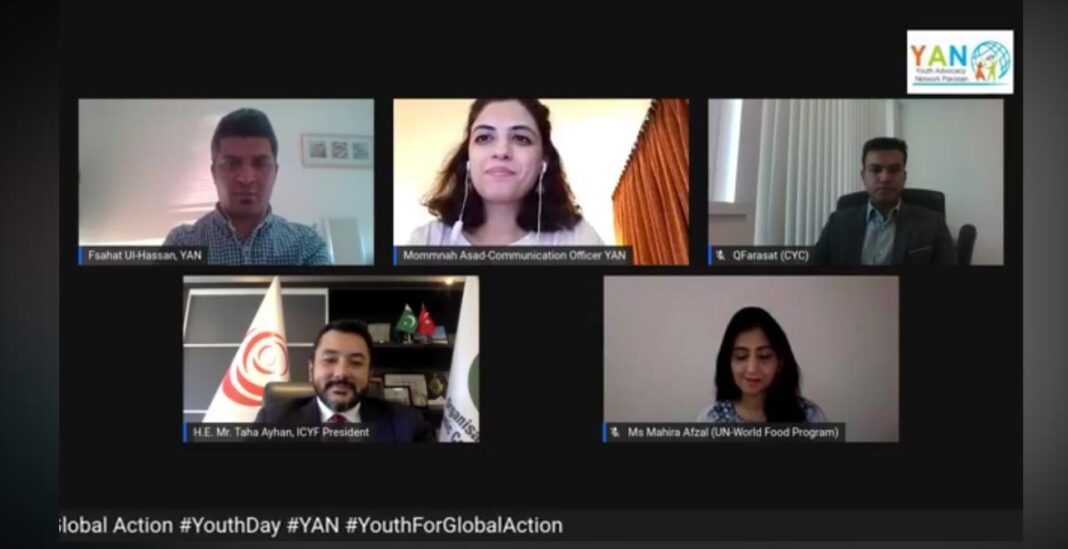By: Afrasiab Ahmed Rana
On 19th September 2019 Learned Presiding officer of Intellectual Property Tribunal (hereinafter referred as “IPT”) Lahore ordered PEMRA to ensure that phrase “Papa Jani” (beloved father) shall not be used in Diamond Supreme Foam’s advertisements and PEMRA in compliance of said order issued a direction to all Satellite TV Channel licensees to ensure strict compliance with the said order. The said order was passed by the above-referred tribunal in a lawsuit instituted by Master’s Enterprises (PVT) LTD on the pretext of copyright infringement by Diamond Industries LTD.
Brief facts of the said lawsuit are that Masters Enterprises owns a famous foam brand namely Master’s Molty Foam. In a TV advertisement, the said brand has tried to justify their quality by the love and affection of a father for his daughter. In that advertisement, the father gifts Molty foam to her daughter at her wedding to show his great love and affection for her. The referred advertisement features an Urdu phrase “Papa Jani“, the daughter used the said “Papa Jani” phrase to address her father.
Diamond Industries, Masters` competitor, has started an advertisement campaign and used the above-referred phrase “Papa Jani” in that campaign. The IPT, Lahore has passed the above-referred restraining order on infringement of intellectual property rights of Masters Enterprises.
Intellectual Property (IP) (alternatively used as Moral Rights or Intellectual rights), the word and conception are not new, was frequently used in Legal and legislative debates of British society in mid of the 18th century. The intellectual property rights (IPR) got legislative assent in 1624 when Queen signed the Statute of Monopolies in the year 1624. According to the 3rd edition of Oxford English Dictionary word “Intellectual Property” was used by “Monthly Review” Magazine in the year 1769 but the same was made a part of the rule of the court in “Millar vs. Taylor” [(1769) 4 Burr. 2303, 98 ER 201] in the same year.
Modern legal systems widely accept and respect the IPRs of individuals and encourage enforcement of intellectual property rights. Mainly Copyrights, patents, and trademarks are considered as intellectual property but if we deeply lien in the conception it will lead us to include industrial design rights, plant variety rights, trade dress, and geographical indications as intellectual properties.
Intellectual property laws mainly emphasis on the creation of original ideas and preservation of the intellectual property of a person. It also helps the originators to get the maximum financial benefit of their efforts.
Though morality is not enforceable in Law but in the case of IPRs morality also demands that the intellectual property of a person may be preserved, and intellectual property laws enforce the will of morality for the preservation of intellectual property.
The legal system of Pakistan, being a subsidiary to Common Law, also acknowledges intellectual property rights. The Copyright Ordinance (1962), the Patents Ordinance (2000), The Trademarks Ordinance (2001), Intellectual property Organization of Pakistan Act (2012) and many other enactments have substantiated IPRs in Pakistan but Legal system in Pakistan has not yet attained maturity as to modern concepts i.e Intellectual Property, cyber-crimes etc. but it is worthwhile to acknowledge that the constitution of Intellectual Property Organization of Pakistan (IPO) has changed the very dynamics of enforcement of IPRs in Pakistan. Pursuant to the Intellectual property Organization of Pakistan Act (2012) the federal Government exercising its power conferred upon it under Section 16 has created Intellectual property tribunals at Islamabad, Lahore, and Karachi. These tribunals are very active to enforce the IPRs with the help of agencies i.e Police, FIA, PEMRA, Pakistan Customs, and FBR. The case referred in the first part of the discussion clearly illustrates the fact of enforcement of Intellectual property rights.
IPRs have, over the years, suffered many problems and issue to get recognized in Pakistan but as referred supra, after the constitution of IPO and other international influencers, these rights have now been recognized and enforced by Pakistani tribunals. The above-referred order of IPT, Lahore addressed my attention to the fact that intellectual property laws in Pakistan have now been activated.
It is a sad reality that laws in Pakistan do not provide harsh penalties and punishment, due to this legal lacuna repetition of IPR infringement has not yet been reduced. People do not give these infringements much weigh because of these lenient punishments. Though one cannot rule out this factum that there are a number of legal and social impediments in the enforcement of IPRs but recent examples e.g Masters Enterprises case clears the intention of courts that now IPRs are going to be enforced and no one will be allowed to infringe someone else`s IPRs. Mark my words Intellectual Property Rights have been activated in Pakistan.
The writer is an Advocate High Court. He is a student of LL.M (Corporate Law) at International Islamic university Islamabad, He can be reached at [email protected]








